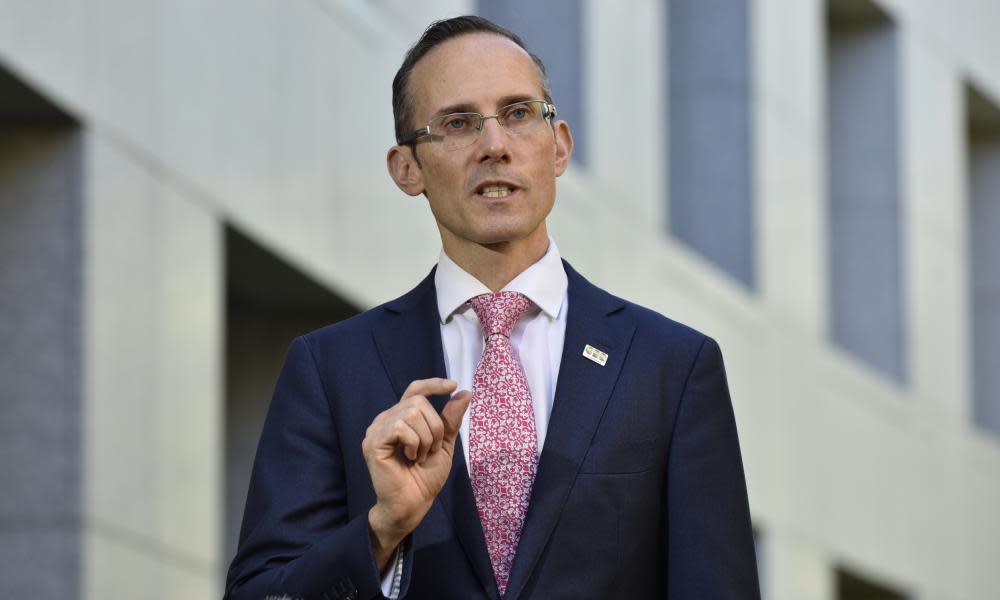Labor demands 200 big companies reveal if they used jobkeeper to pay dividends

The Labor frontbencher Andrew Leigh has written to more than 200 big companies, including Apple, McDonald’s and Microsoft, asking them to reveal whether they have received jobkeeper subsidies and used the money to pay shareholder dividends or executive bonuses.
His move comes amid investor disquiet over what has been dubbed “dividendkeeper”, where companies use the subsidy, which was designed to keep workers hit by the coronavirus recession connected to their jobs, to prop up payments to shareholders.
Leigh has also raised concerns that some Australian companies have used the taxpayer-funded supplement to beef up executive bonuses.
Related: Australian companies getting jobkeeper shouldn't be paying bonuses, business council head says
Last month, he used parliamentary privilege to attack companies including IDP Education, which employs Australia’s highest paid chief executive, and Star casino, for receiving millions in subsidies while paying bonuses.
The companies Leigh has written to are either privately held or owned by offshore interests and also include pharmaceutical multinational Johnson & Johnson, convenience store chain 7-Eleven and resources giants Chevron Australia and ExxonMobil Australia.
While the corporate regulator has asked listed companies to tell the ASX how much they received in jobkeeper payments, its request did not cover privately held and overseas-owned companies.
Jobkeeper is the biggest spending program undertaken by the Morrison government in response to the Covid-19 crisis, with a projected price tag in excess of $100bn.
But while the US and New Zealand governments maintain public databases of which companies receive their wage subsidies – and how much – the Australian government has chosen to keep jobkeeper payments secret.
“What I hope we’ll discover is that firms receiving jobkeeper have chosen to hold back on excessive dividends and executive bonuses,” Leigh told Guardian Australia.
“That’s true of the vast majority of Australian listed firms and I hope that I will find that for the unlisted and overseas listed, but I fear there may be some there who have done the wrong thing.”
He said he had received only a few responses so far, largely from employers who had not received any jobkeeper payments.
“Jobkeeper’s about supporting jobs, and it’s vital that at a time when debt’s going past $1tn that every dollar is being spent appropriately,” he said.
Related: The 'dividendkeeper' shuffle: how jobkeeper payments are flowing to shareholders
Research by Ownership Matters, which provides governance advice to investors, shows 17 of the top 300 listed companies in Australia that received government subsidies paid out dividends to investors totalling more than $250m.
Twenty-five companies in the ASX300 index received jobkeeper support payments and then paid their executives bonuses totalling more than $24m, Ownership Matters said.
The research was compiled before Premier Investments, the retail empire controlled by the billionaire Solomon Lew, reported its results to the market last month.
Premier, which operates in several different countries, received a total of $70m in subsidies from governments during the crisis. It did not disclose how much of the total was jobkeeper, although its chief executive, Mark McInnes, said it was the “single biggest” wage subsidy payment the company received.
It declared a dividend of about $57m, of which $24.25m will flow to Lew.
Announcing the result to the market, Lew said the company did not take jobkeeper into consideration when deciding the dividend.
“In having the discussion with the board we made a commitment not to pay a dividend out of any jobkeeper funds received,” he said. “So it’s purely on trading.”


